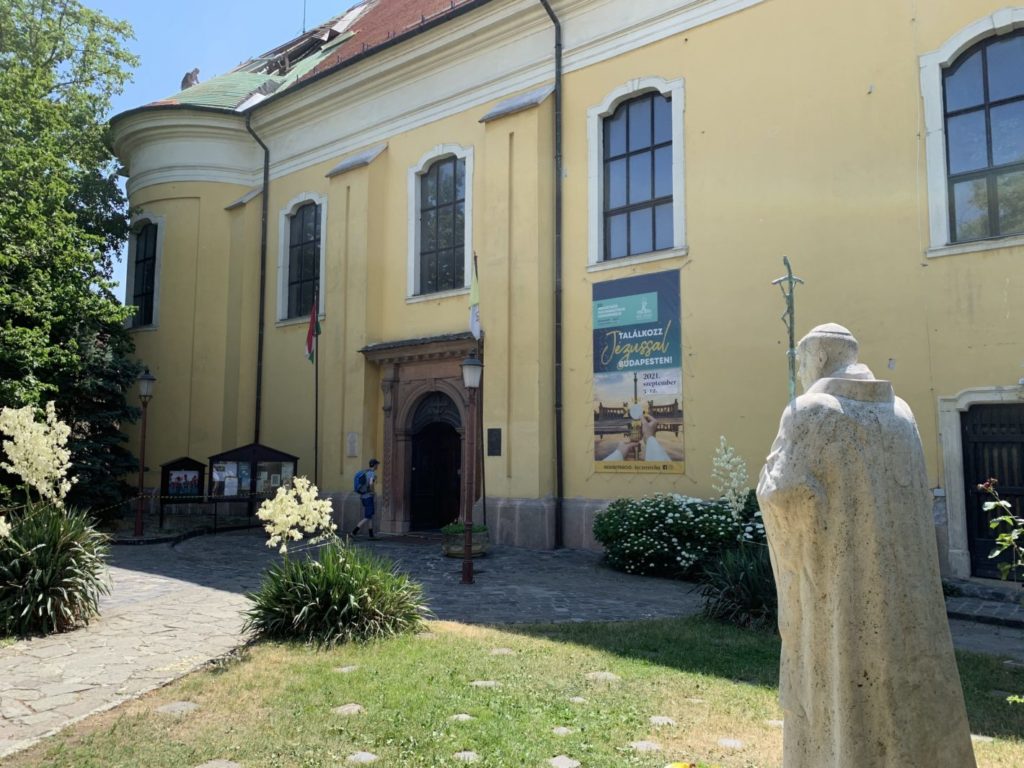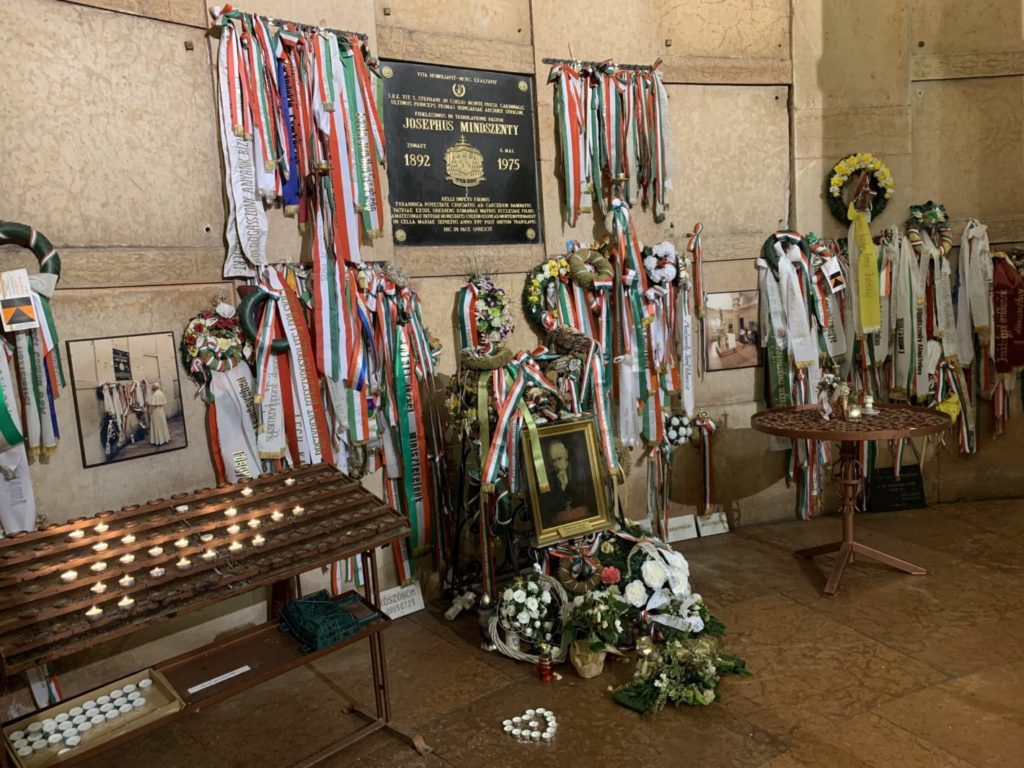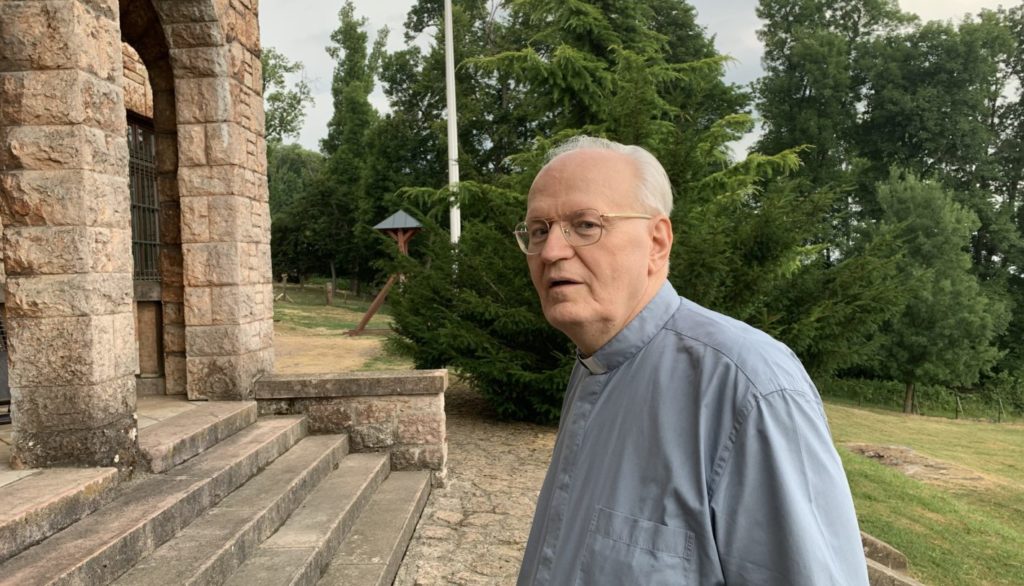What are the difficulties facing the Church in the context you have described?
A major challenge in Hungary has been the network of Catholic schools. Today the Church - dioceses, religious orders, etc. - has about 770 schools, ranging from kindergartens to universities. We have to work very hard so that these schools can transmit something of the Catholic worldview. There are very precise state norms about what should be taught in each course, etc., and also indications about the social action of the schools. For example: in all schools hot meals must be given to the children. On the one hand, this is very important, since there are areas, groups and classes that really need it; but we have to give it to everyone practically free of charge. This is a structural fact, but it has required the expansion of school buildings. Another example: we have had to expand the sports centers and offer more possibilities for physical education, and that costs a lot of money. We needed the support of the government to be able to do this, because the Church does not have the money for so many investments. Something similar happens with the social residences that we have received from the State, both the religious orders and the dioceses. Most of the buildings were not sufficiently modern or well equipped, the management of labor relations is complex, and financing is difficult.
All this forces one to take care of many things, and one can end up asking oneself: how does the Kingdom of God advance? I hear it said by priests. Thanks be to God, parishes are juridical persons recognized by the State; but juridical persons have various administrative obligations that parish priests have to take care of, and some say: I try to take care of it, but I did not become a priest for this. It is also a challenge.

It may also be recalled that in the last thirty years the status of religion classes in public schools has changed once or twice. We have had to train a new generation of teachers and catechists. Thank God, we have our own universities and schools where we can train them. But it is not simply a matter of them having a diploma, but we have to value highly the teaching and ecclesial task of religion teachers. Theirs is a very important function. If we ask ourselves who transmits the faith of the Church today, we have to answer that 80 percent of the teachers are women, especially women teachers of religion in schools. It is very nice, it is a new possibility that did not exist thirty years ago.
As far as the financing of Catholic schools is concerned, it is actually regulated quite clearly in Law 4/1990, which provides for the same financing as for state schools. This provision would later be concretized in the 1997 Agreement between Hungary and the Holy See, which was signed by a socialist government. Consequently, funding is governed by the principle of equality. It is obvious that several questions can be debated from this point. Sometimes there is a debate about how much the State pays to the State schools, to determine whether it helps in the same way to finance the Church schools; but that debate can go on forever, because the exact data is only available to the Ministry, and we only know what the Ministry provides us with.
We could go on and mention other areas where further work is needed. Religious orders and spiritual movements today can operate freely in Hungary, and sometimes they find in the dioceses good pastoral relations, but this is not always the case. As far as ecumenical cooperation is concerned, we have good relations with the other Christian churches, and even with the Jewish religious communities, and not only during the annual ecumenical week of prayer for unity: there are joint conferences, various activities are organized. At the same time, we are aware of our limits in this area: the local Church cannot make decisions about the faith, but must respect the competence of the corresponding bodies of the Holy See. But, in possession of the documents of the Holy See, at the level of practical cooperation we are also quite close on many social issues.
We have good relations with other Christian churches and Jewish religious communities. At the same time, we are aware of our limits: the local church cannot make decisions about faith.
Cardinal Péter ErdőArchbishop of Esztergom-Budapest and Primate of Hungary
The President of the Republic, János Áder, a Catholic, will give a personal testimony at the Eucharistic Congress in September. Is this a formal participation, does it follow a traditional protocol?
When a person professes his or her own religiosity publicly, it cannot be only because of a tradition. It must be a personal conviction.
The current Hungarian government stresses its commitment to Christian values. Do you think this is appropriate?
This is an interesting topic. It would be worthwhile to devote an entire conversation to examining what Christian values are. Certainly, if we are talking about the freedom of persons, the equal dignity of all men, life, the family, the high value of peoples and their culture, then of course there are human values, which stand out more in the light of Christian values.
In addition, there are contents that are related to the person of Jesus Christ. We have been saved, the world has been redeemed. The meaning of existence does not come to us only from creation, but there is much more... God is not distant, but He speaks to us, there is a Revelation. He speaks to us with human words, and through the life of a Person who is Man and God. The person of Christ is for us the great hope, a source of strength and light. For this reason, the Christian cannot be pessimistic, cannot despair. It is important precisely today, when there are many signs of disillusionment and fear in the world. Above all, there is fear of the future.
We talk a lot about the care of nature, but is it not the laws of nature that make possible the destruction of plants, animals and humans? That is why we speak rather of the "care of creation". If the world has been designed by God, if it has a goal, it also has a meaning. It is not only there so that we can live well tomorrow, but there is much more to it. And our responsibility is greater, because we have not received the earth as owners, but we have to take care of it and protect it as good stewards. If life and human existence are not seen in this perspective of meaning and value - these are Christian values - then the most valuable thing will be that we are doing well at the moment, whether we say so openly or not; like the "carpe diem" in Roman times. Then one is afraid of the future, because tomorrow I might not feel well; one is afraid of others, because maybe because of them I might have to deny myself something, and I would begin to see them as a threat.
If human existence is not contemplated in the perspective of meaning, the most valuable thing will be to find oneself well at this moment. You will be afraid of the future; or of others, and you will begin to see them as a threat.
Cardinal Péter ErdőArchbishop of Esztergom-Budapest and Primate of Hungary
Individualism and isolation are also a consequence of meaninglessness. If that is so, then neither language, culture, history, nor the past and the future, have any sense. How can one feel one's own responsibility if nothing has any meaning? Let us realize that the responsibility for creation is really only well founded within the framework of that system. When there is no measure, one can doubt which is worth more, a stone or a man.
And the same is also true for secularization if we want to return to that theme. There was an early form of secularization, when something else was put in the place of God; for example, progress: there is no God or we don't know his plans, but we have progress. Yes, but... progress to where? Where is the goal? Today we see a second form of secularization, the secularization of secularization, which is the approach mentioned above, which makes it very difficult to live and work together in a responsible way.
Therefore, a change is needed, a conversion, as Pope Francis says. Thus, we have returned to the beginning, when John the Baptist began to preach, and to the beginning of the proclamation of Jesus Christ, who, as we read in the Gospel, said at the beginning: "Repent and believe in the Gospel". This is our message.
What is the point of the debate among European leaders on values? You know Europe well, because you chaired the Council of European Bishops' Conferences between 2006 and 2016.
Values always express a relationship. Something is worth more or less, compared to something else. In everyday life we express this very primitively in monetary terms.
It is fine to compare one thing with another, but is the world as such valuable? It is only valuable if there is also another reality with which the world can be compared, with which it can be in relation. Then values will be grounded. And values cannot be invented or created by oneself, but are given in the structure of reality, and must be discovered. Then, one has to orient one's own behavior according to them.
Values cannot be invented or created by oneself, but are given in the structure of reality, and must be discovered.
Cardinal Péter ErdőArchbishop of Esztergom-Budapest and Primate of Hungary
An emblematic figure in Hungary is Cardinal József Mindszenty, defender of freedom in the face of communism. Is his canonization process moving forward?
Although historical vicissitudes prevented me from meeting Cardinal Mindszenty personally, he was my bishop when I was admitted as a candidate for the priesthood. Since he was living in the American embassy, he was unable to maintain contact with the diocese.
József Mindszenty was a Catholic voice that was violently repressed. That made him very respected, also by non-Catholics. He is a personality who offered his whole life for the Church, for the faith and also for Hungary. Exiled, he visited the Hungarian diaspora all over the world with great affection and strengthened them morally. Today he is still held in high esteem. There are many streets, squares, schools, etc., named after him, and a rich literature has been published about him.

I sincerely believe that he was not only a national hero, but also a holy man. Therefore, my joy was very great when Pope Francis issued the decree on his heroic virtues in 2019. It is an important step towards beatification. We are now praying for a miracle. There are already healings attributed to her intercession, but the criteria for it to be a miracle are very strict. We hope that one day our many prayers will be answered.
Mindszenty was not only a national hero, but also a holy man. My joy was very great when Pope Francis issued the decree on his heroic virtues.
Cardinal Péter ErdőArchbishop of Esztergom-Budapest and Primate of Hungary
What other topics occupy you?
Apart from the major issues of interest in the life of the Church today, and also in relation to them, as a historian of Canon Law I am studying questions such as synodality in the early Church, or the need for discernment before the adoption of decisions such as a sentence or the promulgation of a law. I am interested in analyzing the structure of all those decisions, and the criteria to be followed in that discernment, from the Catholic point of view.
These and other questions are always important in the life of the Church. We hope to find answers also on the basis of history, answers that will be a help for the life of the Church today. Now a book of mine is going to be published in Italy where I offer collected texts, also on these themes.
This question has much to do with the Holy Spirit. The early Church was convinced that the apostles, the presbyters in the Church of Jerusalem, as we see already in the Acts of the Apostles, when they had to decide a question in common, they needed the help of the Holy Spirit, which they certainly did not lack; and from texts and liturgical fragments it is clear (this is now reflected in the prayer of priestly ordination) that they had a collective spirit of presbyterate under consideration, before the councils in the strict sense of the word came into being. These appeared perhaps towards the middle of the second century or later, when the monarchical episcopate spread. But before that there was already the presbyterate of the local Church. Later, when the bishops met together, they also had the conviction that they, like the presbyters of the local Church, were in some way successors of the apostles, and that together they had the assistance of the Holy Spirit. It is therefore a very ancient question.
Anything else you would like to add?
Yes, I would like to emphasize once again how happy we are about the upcoming visit of Pope Francis. We await him with great affection, and we are very grateful for your prayers for us. We Hungarian Catholics pray very much for him and for his apostolic ministry. For us, the fact that he is coming to our country is a sign of mercy. And your personal presence in our country is a great expression of unity with the whole Church.
We look forward with great affection to Pope Francis, and we thank you very much for your prayers for us. We Hungarian Catholics pray very much for him and for his apostolic ministry.
Cardinal Péter ErdőArchbishop of Esztergom-Budapest and Primate of Hungary





 Cardinal Erdő: "The Catholic Church has its own identity, beyond nationalism."
Cardinal Erdő: "The Catholic Church has its own identity, beyond nationalism."





